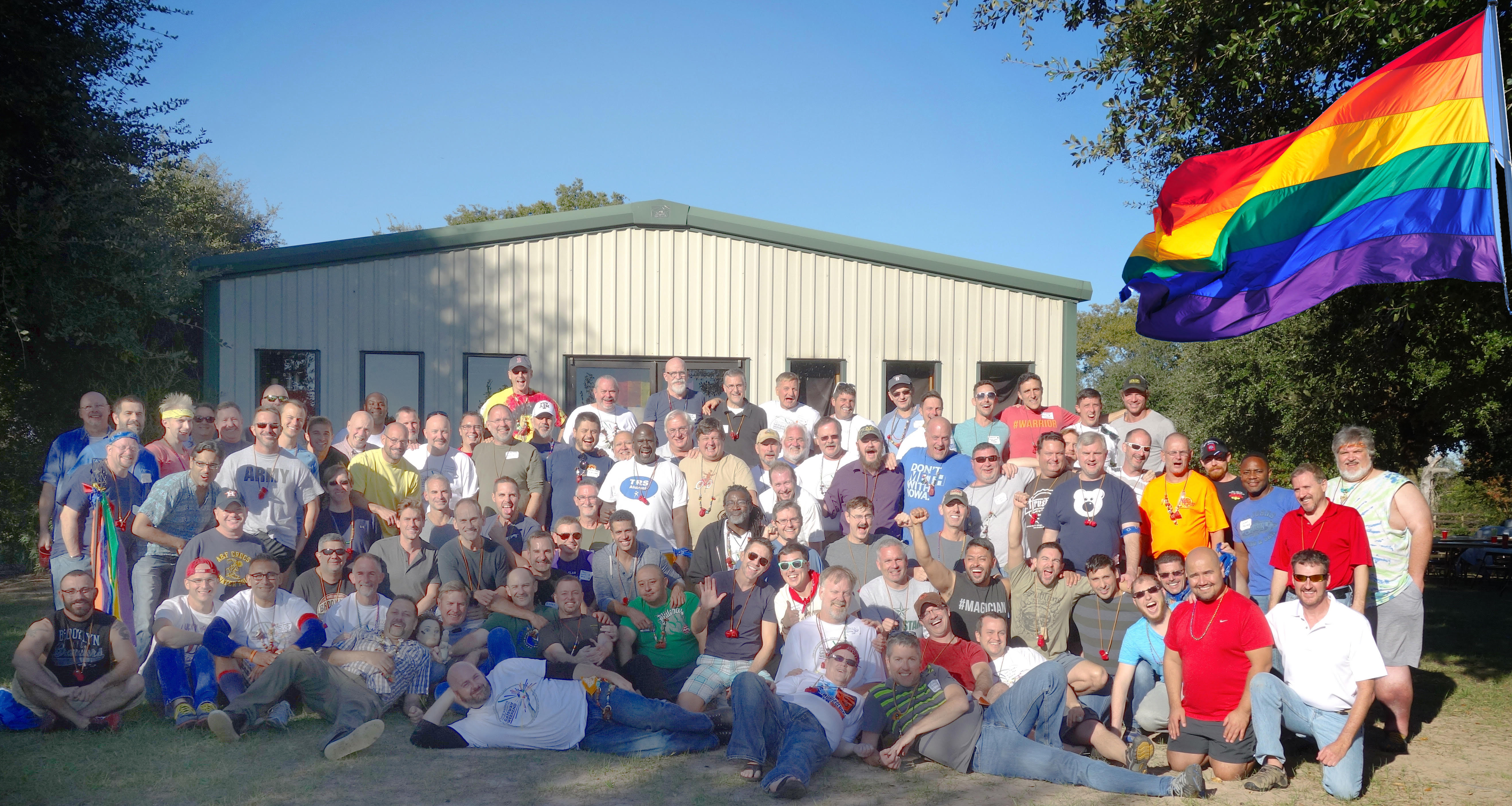
Gay Houstonians Say ManKind Project Helped Them Conquer Internalized Homophobia
GBTQ Gateway set for Texas in November.
By Cameron Wallace
In April 1994, Prentiss Jones had been sober for seven years, but he was still suffering from low self-esteem and doubts about his identity as a gay man.
Internalized homophobia had led to years of depression and self-loathing that were putting stress on his relationship, creating a feedback loop of negativity and stress that seemed inescapable.
One weekend, Jones accompanied a friend who was also in recovery to a ManKind Project “homecoming,” a public gathering where graduates of the project’s New Warrior Training Adventure share how it affected them.
When his friend spoke, Jones was shocked by the transformation he saw. Not only had his friend’s face and demeanor changed, but nearly everything about him seemed different. Jones’ friend emitted a new aura of power, love, and strength.

The transformation was so drastic, in fact, that it scared Jones. He waited a full year after the homecoming to sign up for the New Warrior Training Adventure, but he knew he had to take a chance. When he finally experienced the training for himself, it was so powerful that 23 years later, he is still active in MKP as a multicultural steward, working to increase the program’s sensitivity and receptivity to cultural differences.
“Prior to the weekend, I really hated myself as a gay man; I did not accept myself,” Jones recalls. “I really didn’t think that I deserved to be alive. I was depressed for many years, and getting sober and working the 12 steps of recovery, which I still do, helped a lot. But on my weekend, I saw that I was a man among men. I was an equal. I had never really believed that about myself before then.”
Jones is one of several local gay men who say the ManKind Project has helped them come to terms with their sexual orientation.
The Training Adventures represent the first step in a member’s journey. After that, they can join discussion groups meant to help them integrate the experiences from their training weekends into their lives. They can also lead other participants as staff members on Training Adventures or as integration group leaders.
“The project tries to give men the space to remove stereotypes and figure out what mature masculinity is for them and how it comes out in themselves,” says Richard Torres, South Central Area director for the ManKind Project.
Torres will serve as a leader of the ManKind Project’s upcoming New Warrior Training Adventure GBTQ Gateway, set for November 3-5 in North Zulch, Texas.
GBTQ men had always been a part of the ManKind Project, according to Chris Cefalu, another staff member for the upcoming weekend. However, in the beginning, they were discouraged from expressing non-heterosexual identities. Gateway weekends were created to signal to GBTQ men they are welcome across the ManKind Project, and provide them with safe spaces.
At GBTQ Gateways, roughly 90 percent of the participants are gay, bisexual, trans, queer, or questioning, including the staff.
“This particular weekend is focused on gay, bi, trans, queer, or questioning men who may not otherwise feel safe on a traditional weekend and really helping them explore what’s going on in their lives and in themselves in general,” Cefalu says.
Tony Gray of Houston, another graduate of the program, grew up in a staunchly Catholic household and had few healthy relationships with straight men during his childhood. As a result, he developed a distrust of men, which made forming relationships difficult. Like Jones, Gray was attracted to the ManKind Project after attending friends’ graduation ceremonies.
Gray signed up for a traditional Training Adventure, not knowing what to expect. Going in, he was extremely nervous, but he discovered that his biggest fear had been what he would discover about himself. Through the ManKind Project, Gray eventually found his husband.
“One of the greatest things I got from the retreat was unconditional acceptance by straight men—something I had never found in my life before,” Gray says. “I walked away with a whole new set of very close friends. They knew I was gay and they were accepting me just as I was accepting them, and I had never in my life up to that point experienced such acceptance from straight men.”
Eddie Robinson of Houston, who will also help staff the GBTQ Gateway in November, says his Training Adventure empowered him to be proud about coming out in both his personal and professional lives.
“For so long, going through life as gay men, we’ve had to hide,” Robinson says. “We’ve had to hide our true feelings in order to participate in something, in order to take part in a conversation, to love the person we really want to be with, but going through MKP has really offered a sense of courage and fulfillment for me.”
Jones says during his first Training Adventure two decades ago, he found a new sense of self-respect, a new courage to be emotionally vulnerable, and a new sense of maturity. After the retreat, he found that he was able to recognize the prejudices within himself that were causing him to reject his identity, and he was able to honestly tackle them head on.
When his partner of 33 years died in 2014, Jones became an active member of the ManKind Project again. He says the tools he acquired during his Training Adventure have greatly contributed to his sustained sobriety.
“It’s such a beautiful thing to be hearing a man talk about an experience in his life, and see him crying his eyes out and shaking, and to see how he is after that experience,” Jone says. “He’s clear, and he’s in touch with his body and his feelings, and that may be the first time in his life he’s ever experienced that or talked about that experience. It’s pretty cool stuff.”•
For more info, ManKindProject.org.










